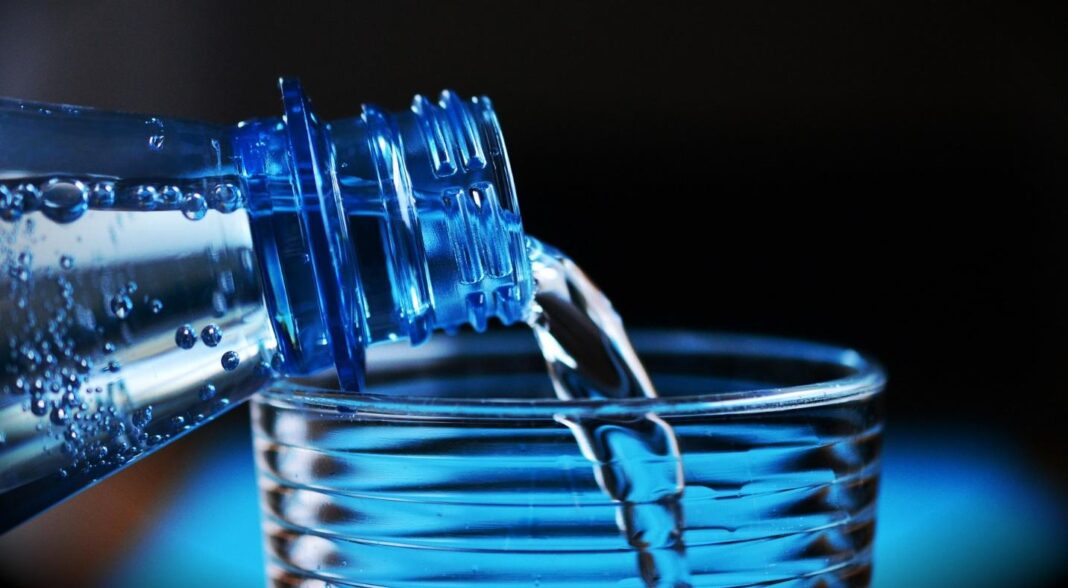Water is a colorless liquid made up of two atoms of Hydrogen and one atom of Oxygen (H2O). Although it has no calories, an adequate amount of water in the body is necessary to boost energy levels, maintain metabolism, and improve the skin.
Most people do not consume enough fluids, disturbing body functions and homeostasis. Because more than 70 percent of the human body is made up of water, it is utilized in every process. Drinking 237ml of water every day is recommended, but there is a need for more scientific support behind this. Here are eight reasons you should be sure to drink enough water daily.
- Improves physical performance
Inadequate body fluids can affect your physical performance, especially during exercise or on hot days. In addition, recovery and movement of muscles will also be compromised because water is necessary for muscle fibers’ effective contraction and relaxation.
A loss of 2% of the water from your body can cause noticeable complications and impair physical performance. Athletes lose 6-10% of their fluid content during workouts in the form of sweat. This can cause fatigue, overheating, digestive problems, headaches, disturbance in body homeostasis, and reduced motivation.
You must drink plenty of water to normalize body equilibria to perform optimally. Drinking a gallon of water a day can help you replace the water content you lose when you perspire, breathe and eliminate your waste in the form of urine and feces.
- Helps in digestion and blood circulation
During digestion, water and digestive enzymes are mixed with the food. Then, the food content is broken down into smaller particles and absorbed into the blood. This absorbed material contains water.
An adequate amount of water in the digestive tract prevents constipation, improves GIT (Gastro Intestinal Tract) functions, and normalizes bowel movements. If you don’t have enough water in the digestive system, the large intestine removes the water from the stools, resulting in complications like constipation.
- Regulates blood thickness
Blood is what keeps your entire body running. Without it, there would be no way for your organs to function. And when you’re dehydrated, the blood in your body can become thicker and harder to circulate. Drinking water helps keep your blood fluid enough so it flows smoothly through the body and keeps all your organs working properly.
- Improves brain function
Drinking plenty of water daily is necessary for brain function. Dehydration can lead to mental acuity changes and make it more complicated for you to think clearly. Drinking water can help keep your brain in top form and improve your mental capacities.
A study shows that minor fluctuation in your body fluids, even 1-3% of body weight, can influence brain functions. According to research on women, mild dehydration (1.4%) after exercise can cause fatigue, disturbance in mood, headache, increased perception of task difficulty, and a lack of concentration on different tasks. A loss of 1-3% of body fluids in a person weighing 68kg equals losing body weight up to 2kg.
- Clearer and hydrated skin
Drinking plenty of water each day is also great for your skin. It keeps your body hydrated, which helps keep your skin soft and smooth. Drinking water can also help reduce the appearance of cellulite by flushing out excess bodily fluids and reducing fluid retention in the tissues beneath your skin.
The skin comprises 75 percent water, so keeping this part of your body well-hydrated is essential. When you’re dehydrated, your skin can become dry and flaky.
- Better metabolism
Metabolism is the sum of all the activities taking place in the body. Anabolism (synthesis) and catabolism (breakdown) are two types of metabolism. Your metabolism keeps your body running at peak performance, so it’s essential to keep it going strong. Drinking plenty of water each day will help you get a better metabolism as time goes on. The more hydrated you are, the faster your body can carry out metabolic reactions such as burning fats.
- Hydration of muscles
Your muscles give you the strength to do everything from lifting heavy objects to running around after children all day. When muscle cells have inadequate water and electrolytes, they will not work effectively, which can lead to muscle fatigue. Maintaining your muscles and body hydrated during every day routines and exercise is necessary.
According to the American College of Sports Medicine, drinking 17 ounces of fluids approximately two hours before exercise is recommended.
- Treatment of headaches
Headache and migraine are the two common complications that dehydration can cause. Those who experience frequent headaches should improve their fluid intake. Research on 102 men found that drinking 1.5 liters of additional water can improve the scoring system for migraine symptoms (Migraine Quality of Life Scale). But some scientists say that more research is needed to evaluate how hydration can improve and decrease headaches’ frequency and intensity.
- Treatment of kidney stones
In addition to dissolving and transporting nutrients, water helps remove waste products from the body. Kidneys are part of our excretory system, and they filter 120-150 quarts of fluid. Out of these, 1-2 quarts are excreted as urine while the rest of the filtered fluid is recovered into the bloodstream.
Deposition of different chemicals in the kidney can form stones that can interfere with the functions of the renal system. Because of this, kidneys cannot filter fluid that can build up inside the human body. Such types of kidney diseases, when not treated for a long time, can cause kidney failure.
The primary cause of such kidney stones is the lack of water in the body. According to a report by the American College of Physicians, a person who developed kidney stones previously should increase body fluids to enable urination of up to 2 liters per day. This can reduce the chances of kidney stone recurrence by 50%.
In addition to the above benefits, an adequate amount of water in your body can improve the following:
- Joints cushioning
- Transport of oxygen and nutrients
- Maintenance of homeostasis
- Levels of electrolytes in the body
- Stable heartbeat
- Blood pressure
- Removal of wastes through sweating and urination
- Protection of the spinal cord
- Improvement in focus and concentration
Conclusion
A mild disturbance in levels of your body fluids can affect you physically and mentally. Only a small quantity of water is obtained from the food we eat; most of the quantity is delivered by drinking water and beverages such as coffee. Patients who use medications for the heart or kidneys should also increase their water intake because they have diuretic effects. So, ensure you drink enough water each day.

















